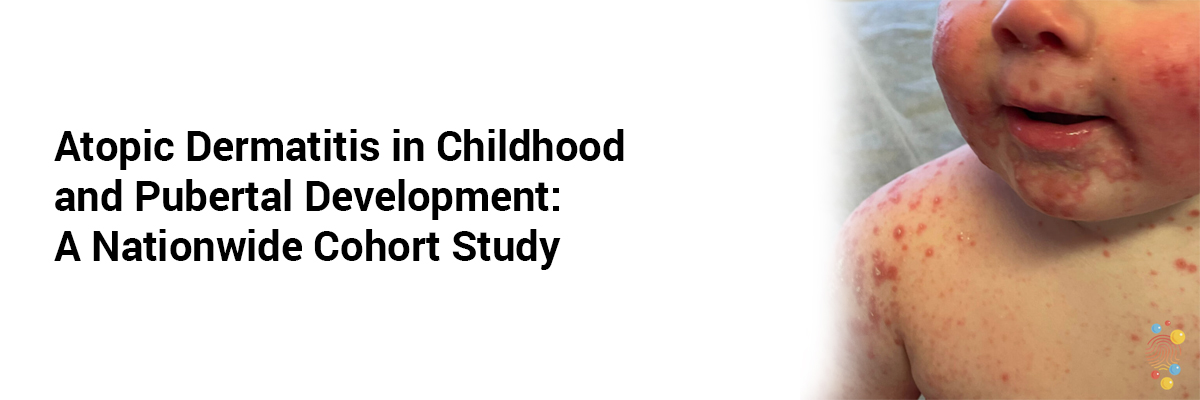
 IJCP Editorial Team
IJCP Editorial Team
Atopic Dermatitis in Childhood and Pubertal Development: A Nationwide Cohort Study
Childhood atopic dermatitis (AD, also known as atopic eczema or eczema) may influence the timing of puberty through complex immunological and hormonal interactions, potentially delaying pubertal development. Altered pubertal timing is associated with adverse overall and reproductive health outcomes in adulthood.
AD is a chronic inflammatory skin disease and one of the most prevalent conditions in childhood and adolescence, affecting 15–20% of children and 2–10% of adults. It is frequently associated with asthma, hay fever, and food allergies. Previous studies have linked asthma and other chronic inflammatory diseases in childhood to delayed physical and pubertal development.
To date, only one study has directly investigated AD in relation to puberty, but it was limited to girls and reported combined estimates for AD, asthma, and allergies, suggesting earlier pubertal onset. Most research has focused on childhood growth parameters such as height, with inconsistent findings. These studies indicate that growth impairments in children with AD may be transient, raising the hypothesis that delayed onset of the adolescent growth spurt could contribute to altered pubertal timing.
Several mechanisms may underlie a potential delay in puberty among children with AD. Compromised skin barrier function can increase the absorption of endocrine-disrupting chemicals and allergens. Sleep disturbances may disrupt hormonal regulation, and dietary restrictions due to food allergies, chronic treatment (e.g., topical glucocorticoids), or an overactive immune system may also play a role.
In this nationwide cohort study, we investigated the association between childhood AD and pubertal development, hypothesizing that AD is linked to later onset of puberty.

IJCP Editorial Team
Comprising seasoned professionals and experts from the medical field, the IJCP editorial team is dedicated to delivering timely and accurate content and thriving to provide attention-grabbing information for the readers. What sets them apart are their diverse expertise, spanning academia, research, and clinical practice, and their dedication to upholding the highest standards of quality and integrity. With a wealth of experience and a commitment to excellence, the IJCP editorial team strives to provide valuable perspectives, the latest trends, and in-depth analyses across various medical domains, all in a way that keeps you interested and engaged.




















Please login to comment on this article